OUR VISION
We long to see all people celebrating Jesus as their greatest treasure in Carpinteria, The Coastlands, and The Nations.
OUR MISSION
We seek to fulfill our vision by making disciples of Jesus who Delight in His goodness, Declare His Good News, and Demonstrate His good works together.
Our Statement of Faith
God
We believe there is one God, eternally existing in three persons: the Father, Son and Holy Spirit. (Genesis 1:1, Deuteronomy 6:4, Matthew 28:19, John 10:30)
Jesus
We believe in the deity of Christ (John 10:33); His virgin birth (Isaiah 7:14, Matthew 1:23, Luke 1:34-35); His sinless life (Hebrews 4:15, 7:26); His miracles (John 2:11); His vicarious and atoning death (I Corinthians 15:3, Ephesians 1:7, Hebrews 2:9); His resurrection (John 11:25, I Corinthians 15:4); His ascension to the right hand of the Father (Mark 16:19); His personal return to earth in power and glory. (Acts 1:11, Revelation 19:11-13, Revelation 19:14-16)
Holy Spirit
We believe in the present ministry of the Holy Spirit, Who gifts us to accomplish Christ’s purposes in the world and Who manifests His presence to the world through Christ’s church (Romans 8:13-14; Romans 12; 1 Corinthians 3:16, 6:19-20; 1 Corinthians 12 & 14; Ephesians 4:30, 5:18)
Salvation
We believe in the absolute necessity of regeneration by the Holy Spirit for salvation because of the exceeding sinfulness of the human nature, and that all are justified on the single ground of faith in the shed blood of Christ, and that only by God’s grace through faith alone are we saved. (John 3:16-19; John 5:24, Romans 3:23; Romans 5:8-9, Ephesians 2:8-10, Titus 3:5)
We believe in the resurrection of both the saved and the lost; those who are saved by faith in the finished work of Christ unto the resurrection of life, and those who are not unto the resurrection of damnation. (John 5:28-29)
We believe in the resurrection of both the saved and the lost; those who are saved by faith in the finished work of Christ unto the resurrection of life, and those who are not unto the resurrection of damnation. (John 5:28-29)
The Church
We believe in the spiritual unity of the believers in our Lord Jesus Christ. (Romans 8:9, I Corinthians 12:12-13, Galatians 3:26-28)
We believe that we as Christians are called to live life on mission as a people sent into the world for the demonstration and proclamation of God’s love as made evident in the Gospel of Jesus Christ. (I John 4:16-17)
We believe the Church to be people of God, called to God, and sent by God, for the glory of God, to meet the needs of the world with God.
We believe that we as Christians are called to live life on mission as a people sent into the world for the demonstration and proclamation of God’s love as made evident in the Gospel of Jesus Christ. (I John 4:16-17)
We believe the Church to be people of God, called to God, and sent by God, for the glory of God, to meet the needs of the world with God.
The Bible
We believe the Bible to be the inspired, infallible, authoritative, and inerrant Word of God. (II Timothy 3:15-17, II Peter 1:21)
Meet The Leadership
ELDERS/PASTORS
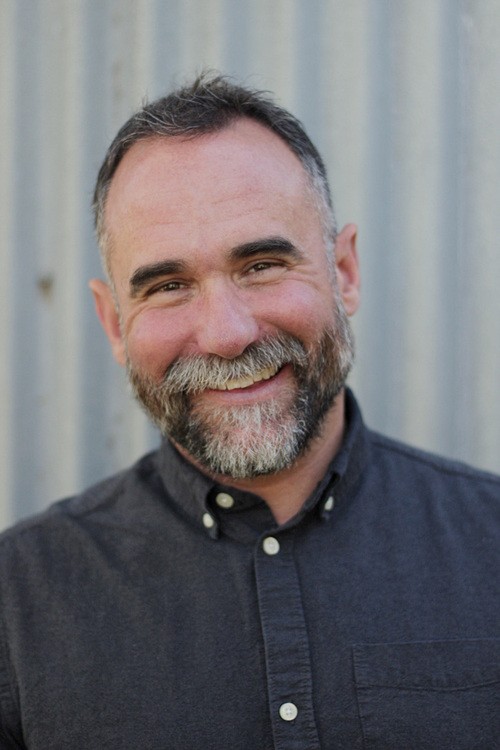

DEACONS
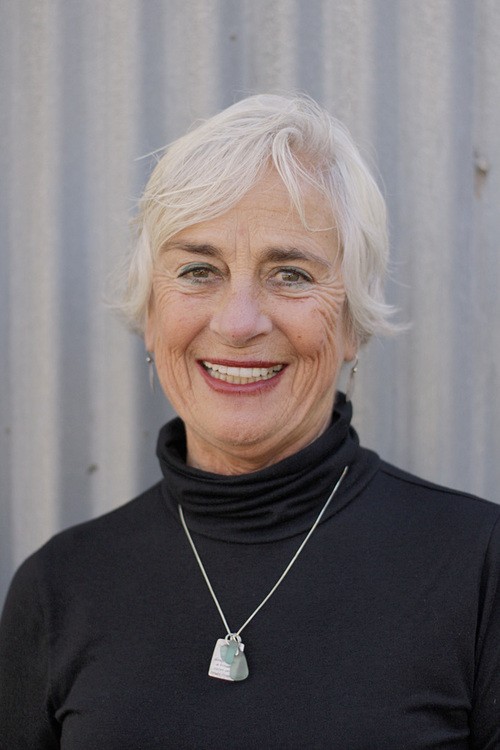
Lois Classen
Deacon
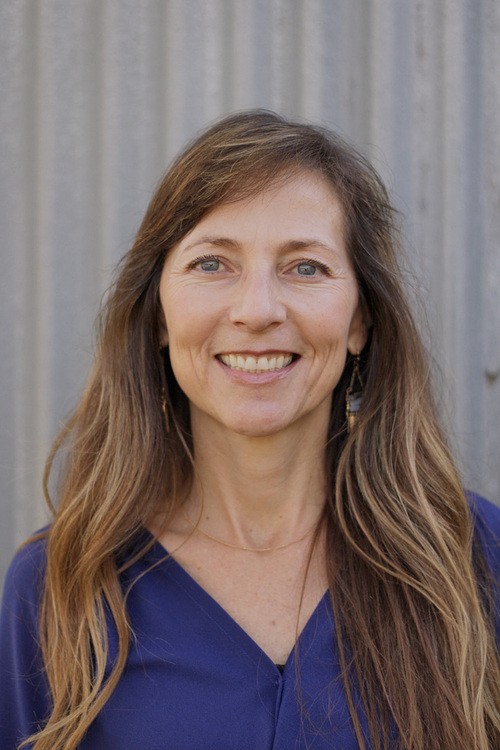
Hedy Nystrom
Deacon
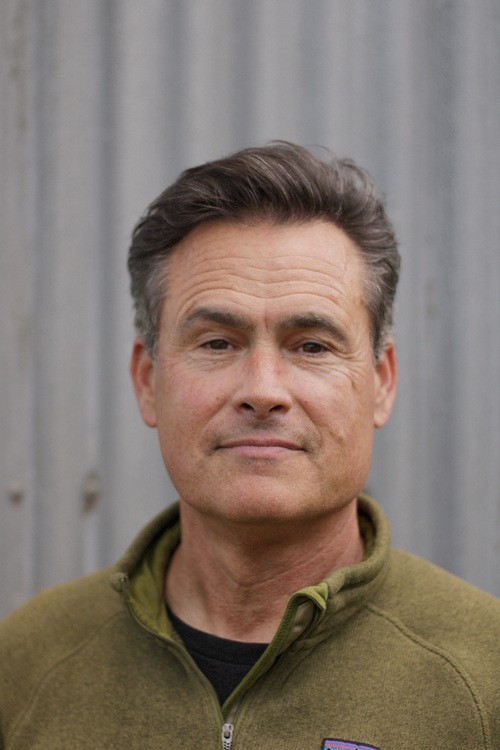
Matt Klein
Deacon
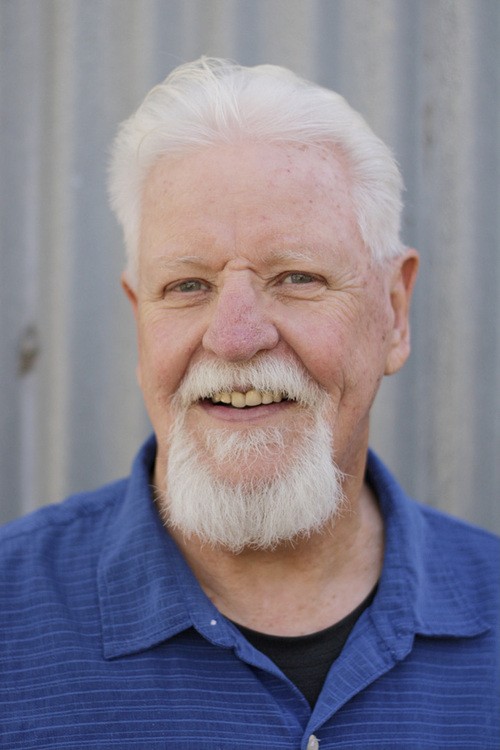
Bill Stapleton
Deacon

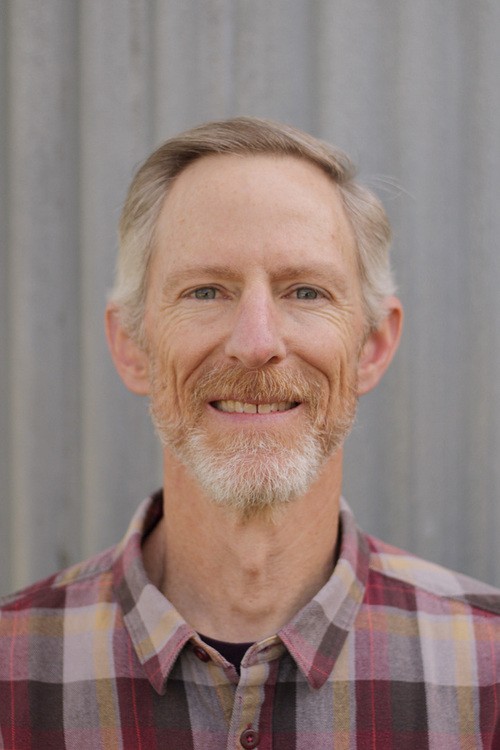
Jessie Mulligan
Eric Nystrom
Deacon
Deacon
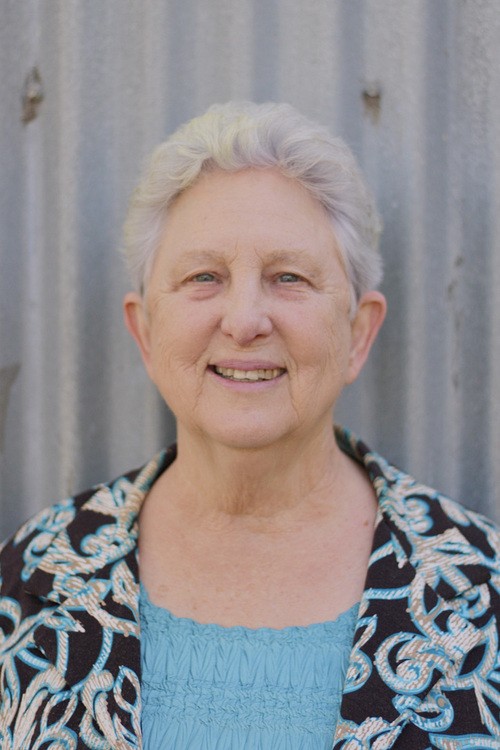
Danece Stapleton
Deacon
STAFF


Aaron Cronen
Rachel Titiriga
Our Ecclesiology: Who Leads The Church?
While Scripture does not give us an exact model for the governance of the church, it does outline for us the qualifications and responsibilities of leaders, the proper use of spiritual gifts, the exercise of discipline, the judging of doctrinal issues, etc. The following is what we at Reality believe to be a biblically viable and faithful expression of church governance.
Jesus Is The Senior Pastor
At Reality we recognize Jesus as the Senior Pastor of the church. He is the ultimate leader. He is the foundation of the church (1 Corinthians 3:11), builder of the church (Matthew 16:18), redeemer of the church (1 Peter 1:17–21), head of the church (Colossians 1:18), chief shepherd of the church (1 Peter 5:1–4; John 10:1–30), and the one who loves the church as His very own bride (Ephesians 5:25–32).
This is vital to the way we are to function as a local church and especially as church leaders. Correctly understanding Jesus as head of the church keeps us from taking an unhealthy ownership of the ministry and keeps us focused on obeying Christ and doing everything we do for Him. It’s not our church; it’s His church. They’re not our sheep; they’re His sheep.
We need to remember this fact in our prayers, our teaching, our worship, our decision-making, and our service as a church and as leaders. We are all under the headship of Christ. Sometimes Christ may lead our churches in a different direction than we anticipated, and at these junctures we must part ways with our own opinions and yield ourselves to His leading. As Jonathan Edwards said, “the task of every generation is to discover the direction in which the Sovereign Redeemer is moving, and then to move in that direction.” The early church experienced many of these times of unexpected direction: the Holy Spirit was poured out upon the Gentiles; the Spirit sent out Paul and Barnabas from Antioch for future ministry; Paul wanted to go into Asia to minister but the Holy Spirit forbade him; and so on.
This is one of the many reasons that all ministry as a collective church and as individuals must be bathed in prayer and faithful to Scripture. In prayer we are submitting ourselves, our opinions, and our ideas to the Chief Shepherd, and we are asking Him to show us the way we should go.
This is vital to the way we are to function as a local church and especially as church leaders. Correctly understanding Jesus as head of the church keeps us from taking an unhealthy ownership of the ministry and keeps us focused on obeying Christ and doing everything we do for Him. It’s not our church; it’s His church. They’re not our sheep; they’re His sheep.
We need to remember this fact in our prayers, our teaching, our worship, our decision-making, and our service as a church and as leaders. We are all under the headship of Christ. Sometimes Christ may lead our churches in a different direction than we anticipated, and at these junctures we must part ways with our own opinions and yield ourselves to His leading. As Jonathan Edwards said, “the task of every generation is to discover the direction in which the Sovereign Redeemer is moving, and then to move in that direction.” The early church experienced many of these times of unexpected direction: the Holy Spirit was poured out upon the Gentiles; the Spirit sent out Paul and Barnabas from Antioch for future ministry; Paul wanted to go into Asia to minister but the Holy Spirit forbade him; and so on.
This is one of the many reasons that all ministry as a collective church and as individuals must be bathed in prayer and faithful to Scripture. In prayer we are submitting ourselves, our opinions, and our ideas to the Chief Shepherd, and we are asking Him to show us the way we should go.
Elders/Pastors
While Jesus is the Chief Shepherd over the church universal, He also appoints men to oversee and care for local expression of the church. The terminology used for this singular position/office is threefold: overseer/bishop, elder, and pastor. These three terms are used interchangeably and synonymously in the New Testament as they display different and plural aspects of the same position and responsibilities. For example, Peter uses elder (presbuteros), overseer (episkopos), and shepherd (poimen) in his exhortation to leaders in 1 Peter 5:1–2. Without here developing a well-reasoned exegetical and theological argument (which is beyond the scope of this work), it seems safe to say that the New Testament describes elders as pastors and overseers who are to shepherd the flock of God, protect the flock, watch for and guard against wolves, be examples to the flock, visit and pray for the sick, exercise oversight in the church, take care of the church, preach and teach in the church, exhort in sound doctrine, and refute those who contradict.
Scripture also gives us a clear list of qualifications for those who would be appointed to such positions (1 Timothy 3; Titus 1—2; 1 Peter 5:1–3). The qualifications include male eldership, family before ministry, and shared leadership (plurality of elders). We love our families, we are complementarians, and we share our leadership and ministries.
First of all, family comes before ministry to the local church. In many churches today, the idea that family comes before ministry may be a stated value but is not always an executed value. We believe God desires us to love our families and keep them as a priority over the demands of the ministry. There is no one else who can lead, serve, and love the family like the husband and father. In fact, Paul makes the proper managing of the home a prerequisite for being an elder in the church, for “if a man does not know how to rule his own house, how will he take care of the church of God?” It is clear from Scripture that Jesus loves His church as His bride and that men are to love their wives as Christ loves the church (Ephesians 5:25–32). Christ loves the church in the way husbands are to love their wives! Therefore if a man is giving more attention to the church than to his wife, this represents a reversal of God’s intended order and is a sin. If one is not succeeding in ministry in the home, one is not succeeding in ministry at all. Reality has a tremendous burden for marriages and the family unit, and we refuse to allow either to be destroyed in the lives of its ministers in the name of ministry.
Secondly, we are complementarians. While male eldership is one of the more controversial issues in the church today, this is not one of the essential tenets of the Christian faith; it is a secondary issue. However, it does affect the functioning of the local church. Our position at Reality is to be influenced not by personal or cultural biases but by a careful reading of Scripture.
God has made both men and women equally in His image, but there are distinctions in their roles in the church. This is clearly seen in the Creation account before the Fall (Genesis 1—2). Differentiation of roles implies neither superiority nor inferiority, but a divine order.
The most telling passage on this point is Paul’s instruction to Timothy in 1 Timothy 2:12–13, “And I do not permit a woman to teach or to have authority over a man. . . . For Adam was formed first, then Eve” (NKJV). Therefore, ultimate authority (under Christ) and authoritative teaching in the church are reserved for male elders. No other position in the church is necessarily restricted to men other than the office of elder. In Scripture we see women leading, prophesying, praying, and occupying many other roles in church leadership.
And thirdly, we hold to the concept of shared leadership, or a plurality of elders in the local church. This concept is neither new nor unique but is seen throughout the Scriptures. Shared leadership is found in the Old Testament priesthood and the elders of Israel, in Jesus’ founding of the apostolate, and in the Pauline protocol for establishing elders in the church.
Examples of the plurality of elders and shared leadership abound in the New Testament (Acts 13:1;14:23;15; 20:17–28, 1 Corinthians 15:15–16, Philippians 1:1; 1 Timothy 5:17; Titus 1:5; 1 Thessalonians 5:12–13; Hebrews 13:7,17,24; James 5:14–15; 1 Peter 5:1–2). While one of the elders may have a more prominent role or gifting, as Peter had in the early church, we must not overlook the obvious, that Peter was never referred to as a senior leader over the rest. In his letter, the apostle affirms this when he refers to himself as a “fellow elder” (1 Peter 5:1–2).
Shared leadership is not a hindrance but rather a great benefit, because it allows leaders to share responsibilities and burdens that would overwhelm a single leader and perhaps hinder him from caring for the whole body. Shared leadership also provides much-needed moral and administrative accountability, care, and support. No one is above the temptation to make wrong decisions for the wrong reasons. Therefore, it is imperative that a plurality of elders/pastors lead the church.
Scripture also gives us a clear list of qualifications for those who would be appointed to such positions (1 Timothy 3; Titus 1—2; 1 Peter 5:1–3). The qualifications include male eldership, family before ministry, and shared leadership (plurality of elders). We love our families, we are complementarians, and we share our leadership and ministries.
First of all, family comes before ministry to the local church. In many churches today, the idea that family comes before ministry may be a stated value but is not always an executed value. We believe God desires us to love our families and keep them as a priority over the demands of the ministry. There is no one else who can lead, serve, and love the family like the husband and father. In fact, Paul makes the proper managing of the home a prerequisite for being an elder in the church, for “if a man does not know how to rule his own house, how will he take care of the church of God?” It is clear from Scripture that Jesus loves His church as His bride and that men are to love their wives as Christ loves the church (Ephesians 5:25–32). Christ loves the church in the way husbands are to love their wives! Therefore if a man is giving more attention to the church than to his wife, this represents a reversal of God’s intended order and is a sin. If one is not succeeding in ministry in the home, one is not succeeding in ministry at all. Reality has a tremendous burden for marriages and the family unit, and we refuse to allow either to be destroyed in the lives of its ministers in the name of ministry.
Secondly, we are complementarians. While male eldership is one of the more controversial issues in the church today, this is not one of the essential tenets of the Christian faith; it is a secondary issue. However, it does affect the functioning of the local church. Our position at Reality is to be influenced not by personal or cultural biases but by a careful reading of Scripture.
God has made both men and women equally in His image, but there are distinctions in their roles in the church. This is clearly seen in the Creation account before the Fall (Genesis 1—2). Differentiation of roles implies neither superiority nor inferiority, but a divine order.
The most telling passage on this point is Paul’s instruction to Timothy in 1 Timothy 2:12–13, “And I do not permit a woman to teach or to have authority over a man. . . . For Adam was formed first, then Eve” (NKJV). Therefore, ultimate authority (under Christ) and authoritative teaching in the church are reserved for male elders. No other position in the church is necessarily restricted to men other than the office of elder. In Scripture we see women leading, prophesying, praying, and occupying many other roles in church leadership.
And thirdly, we hold to the concept of shared leadership, or a plurality of elders in the local church. This concept is neither new nor unique but is seen throughout the Scriptures. Shared leadership is found in the Old Testament priesthood and the elders of Israel, in Jesus’ founding of the apostolate, and in the Pauline protocol for establishing elders in the church.
Examples of the plurality of elders and shared leadership abound in the New Testament (Acts 13:1;14:23;15; 20:17–28, 1 Corinthians 15:15–16, Philippians 1:1; 1 Timothy 5:17; Titus 1:5; 1 Thessalonians 5:12–13; Hebrews 13:7,17,24; James 5:14–15; 1 Peter 5:1–2). While one of the elders may have a more prominent role or gifting, as Peter had in the early church, we must not overlook the obvious, that Peter was never referred to as a senior leader over the rest. In his letter, the apostle affirms this when he refers to himself as a “fellow elder” (1 Peter 5:1–2).
Shared leadership is not a hindrance but rather a great benefit, because it allows leaders to share responsibilities and burdens that would overwhelm a single leader and perhaps hinder him from caring for the whole body. Shared leadership also provides much-needed moral and administrative accountability, care, and support. No one is above the temptation to make wrong decisions for the wrong reasons. Therefore, it is imperative that a plurality of elders/pastors lead the church.
Deacons
Although the Bible does not directly explain the role of deacons, based on the example in Acts 6 and the qualifications in 1 Timothy 3, deacons are mature disciples who minister to God’s people in such a way that enables the elders to focus more specifically on their unique role as overseers.
Acts 6: The Origin of and Pattern for the Office of Deacon
The origin of and pattern for the office of deacon can be seen in the book of Acts. According to Acts 6, the rapid growth of the early church created a twofold problem: Widows were being neglected in the daily distribution of food. And leaders of the church were distracted from their primary responsibility of preaching the word because they were occupied with serving tables.
Acts 6:1b-4 explains the problem and solution:
"…widows were being neglected in the daily distribution. And the twelve summoned the full number of the disciples and said, 'It is not right that we should give up preaching the word of God to serve tables. Therefore, brothers, pick out from among you seven men of good repute, full of the Spirit and of wisdom, whom we will appoint to this duty. But we will devote ourselves to prayer and to the ministry of the word.'"
The role of a deacon, therefore, is twofold: To minister to the needs of God’s people (in this case, meals for the widows)., and to allow the church leaders to focus on the ministry of the word and prayer.
While some interpret the ministry of deacons as either task-oriented or people-oriented, Acts 6 seems to present a “both/and:” the deacons serve tables (administration) and serve widows (care for people).
1 Timothy 3: The Role of a Deacon Based on the Qualifications of a Deacon
The role of deacons is further clarified by observing which qualifications are required and which are not. While deacons and elders have several shared qualifications (e.g., good character, no addictions), deacons are not required to be “able to teach” (1 Timothy 3:2), nor is their role compared to managing a household (elders and deacons are both required to manage their households well, but managing is not connected to the deacons’ role in the church as it is in the elders’ role in the church). In other words, deacons serve in leadership but their role does not entail authoritative teaching or ruling as the elders rule.
Deacons at Reality Carpinteria
We have seen that deacons are mature disciples who minister to God’s people in such a way that enables the elders to focus more specifically on their unique role as overseers. Furthermore the role of deacon specifically depends on the context, philosophy of ministry, and needs of a particular local church.
When we look to the future of ministry at Reality Carpinteria, we see the church being led by elders and deacons. The way elders and deacons serve and relate to one another, and to the congregation can be understood as follows: ELDERS serve by connecting people to God. DEACONS serve by connecting people to one another and resources.
Two-Fold Ministry of Reality Carpinteria Deacons
At Reality Carpinteria, deacons have the opportunity to connect people to people and resources in two primary contexts.
Advocacy/Advisory
Deacons will have the opportunity to provide congregational representation in the decision-making processes of the elders. Ultimately, making the final decision will be the responsibility of the elders, but the deacons will provide necessary information to help make the best decision for the church. The deacons will also be advocates for the elders when helping the congregation understand decisions that have been made.
Ministry
Deacons will provide necessary leadership to several areas where people need to be connected to people and the resources of the church.
Staff
We believe the church is an "every member ministry" and that all believers are responsible to carry out the great commission of making disciples of all nations. Some are called by God to serve in vocational ministry to assist the elders and deacons in a variety of ways to love and serve the congregation and the community.
Our staff serves in a variety of ministry and administrative capacities. We are here to serve you any want that we can.
Our staff serves in a variety of ministry and administrative capacities. We are here to serve you any want that we can.
OUR CHURCHES
Reality is a family of churches. Reality Carpinteria was born on September 7, 2003. Since that time we have birthed churches in Los Angeles, Stockton, Ventura, San Francisco, Santa Barbara, Boston, London, and Honolulu. God has called The Reality Family to be a church planting movement. We never sought to be this, but it has become clear that this is what God is calling us to do and be, and it is something we are passionate about.
London
OUR GLOBAL PARTNERS
At Reality Carpinteria, we are committed to seeing the gospel proclaimed to the ends of the earth. As part of this commitment, we joyfully give 10% of our regular offerings to support global missions and church planting efforts. This generosity helps sustain missionaries serving unreached people groups around the world, bringing the hope of Jesus to places where it has not yet been heard. Through these efforts, we partner with the global church in fulfilling the Great Commission and spreading the good news of God’s kingdom to every tribe, tongue, and nation.
To protect the safety of our global partners, we do not use their full names or their specific locations in any of our public communication. For more information on who our global partners are and how you can pray for them, please connect with a pastor.
To protect the safety of our global partners, we do not use their full names or their specific locations in any of our public communication. For more information on who our global partners are and how you can pray for them, please connect with a pastor.

